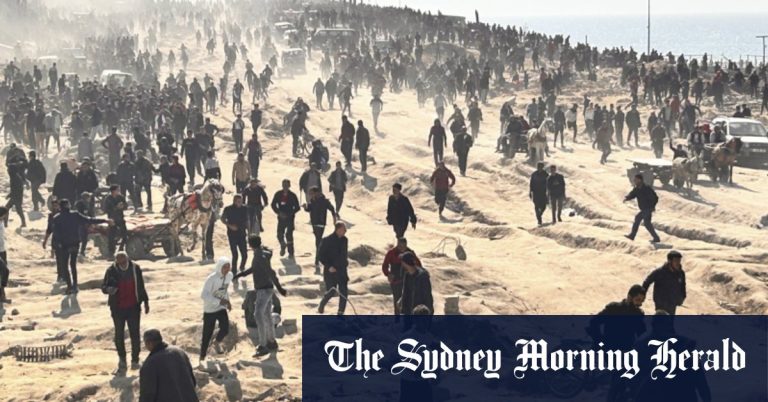Rajasingham said the United Nations and relief organizations face “enormous obstacles just to deliver minimal supplies to Gaza.”
He added that obstacles include the closure of crossings, restrictions on movement and communications, cumbersome vetting procedures, unrest, damaged roads, and unexploded ordnance.
Officials say that Jordan is urging its Western allies to pressure Israel to increase aid coming from the Kingdom through the Kerem Shalom crossing on the border between Egypt, Israel and Gaza, outside the current Rafah crossing.
The Jordanian king was quoted as telling Power that His Majesty the King stressed the necessity of opening land crossings and expanding airdrop operations to help the people of Gaza, especially in northern Gaza.
Later, the King boarded a Jordanian military plane to participate in a joint operation in coordination with the air forces of a number of countries to drop tons of food parcels along the Gaza coast for the second day.
A palace statement said that the Saudi king was also at the airport before the planes took off to verify the readiness of humanitarian supplies and the completion of preparations.
The United States urged its ally, Israel, to keep the border crossings open to deliver humanitarian aid to Gaza and to facilitate the opening of more crossings, according to what US Deputy Ambassador to the United Nations Robert Wood told the Security Council.
“Simply put, Israel must do more,” he said. “We continue to call on Israel to improve deconfliction procedures to ensure the safe and secure transfer of aid.”
WFP Deputy Executive Director Karl Skau told the Security Council that the World Food Program “stands ready to rapidly expand and intensify our operations if there is a ceasefire agreement.”
“But in the meantime, the risk of famine is exacerbated by the inability to bring vital food supplies into Gaza in sufficient quantities, and the near-impossible operating conditions faced by our staff on the ground,” Skau said.
The war in Gaza began when Hamas fighters attacked Israel on October 7, killing about 1,200 people and taking 253 hostage, according to Israeli statistics. Health authorities in the Hamas-run enclave say that the Israeli air and ground campaign in Gaza has since killed about 30,000 Palestinians.
Algeria's ambassador to the United Nations, Ammar Benjameh, told the Security Council that the Israeli campaign on Gaza “is collective punishment of the Palestinian civilian people.” Our silence gives a license to kill and starve the Palestinian people.”
Reuters


